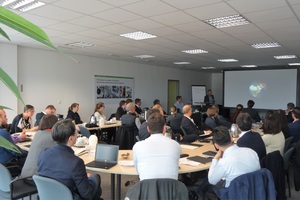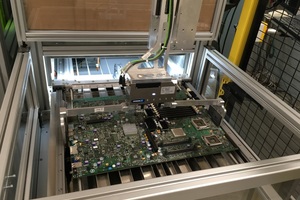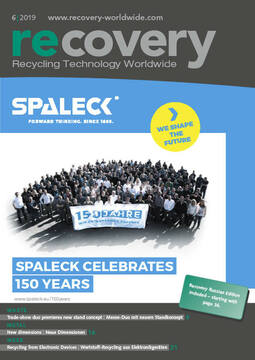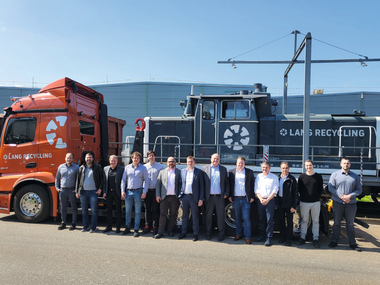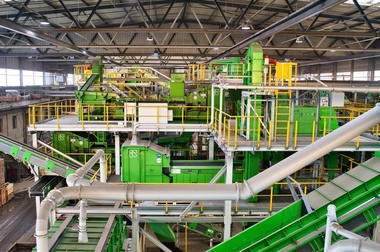Efficiently recycling economically strategic materials from electronic devices
Since 2015, nine project partners from four countries have been researching how to disassemble electronics and reclaim economically strategic materials in the EU project „ADIR – Next Generation Urban Mining – Automated Disassembly, Separation and Recovery of Valuable Materials from Electronic Equipment“. On May 17, 2019, the project partners presented important results in theory and practice at the ADIR Demo Day in Goslar. On the agenda stood an introduction lecture from the Federal Environment Agency and a series of presentations held by the project partners of the ADIR consortium. Recent developments in the project were presented by Prof. Reinhard Noll from the Fraunhofer Institute for Laser Technology ILT. Processes and machines of the ADIR demonstrator were exhibited to the scientific-technical audience. Key concepts in the course of that are „Urban Mining“ as well as the „Inverse Production“.
Symposium: Recycling of economically strategic materials in theory and practice
„In the last two years, systems have been developed that have put our project ideas into practice,“ explains Prof. Reinhard Noll, coordinator of „ADIR“ from Fraunhofer ILT. „On May 17, a demonstration event took place in Goslar for a national and international scientific-technical audience.“ Following the introduction lecture held by Regina Kohlmeyer from the Federal Environment Agency, the ADIR consortium partners reported about the results of the EU project. Afterwards, the developed machines and processes were presented to the scientific-technical audience at the premises of the local Electrocycling GmbH (ECG). Moreover, there was a poster exhibition and samples of the electronic components automatically disassembled from printed circuit boards could be looked at.
ECG, a certified specialist for environmentally friendly WEEE recycling, is testing the ADIR methods and machines in field tests since end of 2018 in order to validate them for industrial use. Dr. Cord Fricke-Begemann, scientist at Fraunhofer ILT and ADIR project manager, explained: ”We show, with the help of the demonstrator, how laser-based material recycling works in practice on mobile phones and computer boards. ECG shows that the technologies developed in the ADIR project also allow large quantities of economically strategic materials, such as tantalum, to be recovered from capacitors.“
Inverse Production: At the center is the use of lasers
The ADIR team is guided by the concept of so-called inverse production, which, in contrast to conventional shredding and pyrometallurgy processes, in the first instance measures and analyzes the end-of-life electronics and then selectively disassembles valuable components to gain novel, highly enriched sorting fractions. The residual material is fed to proven metallurgical processes. The project partners are relying on automated, flexible processes with which electronic devices at their end of use can be automatically disassembled into their individual parts. In the processing plant, there is a clever interaction of laser technology, robotics, vision systems and information technology. An important role in this concept is played by laser processes, which, among other things, not only identify ingredients in electronic components in real time, but also selectively desolder or cut-out electronic components without contacting them. The fact that the process can efficiently recycle strategic materials of high economic importance on an industrial scale speaks for itself. Fricke-Begemann: „With ADIR, we are reducing the EU‘s dependency on natural resources and costly material imports.“
ADIR Project: Lasers Recover Valuable Materials
Taking electronic devices apart that are no longer in use to recover valuable raw materials – this is an essential aspect of the future of urban mining. The Fraunhofer-Gesellschaft is taking a pioneering role internationally in the EU project ”ADIR - Next generation urban mining - Automated disassembly, separation and recovery of valuable materials from electronic equipment”. Launched in September 2015, this project is scheduled to run until 2019. It comprises nine project partners from four countries, who are researching how strategically important materials from old cell phones and printed circuit boards can be retrieved and recycled. The Fraunhofer Institute for Laser Technology ILT in Aachen is coordinating this project, which is being funded by the EU as part of the Horizon 2020 program.

